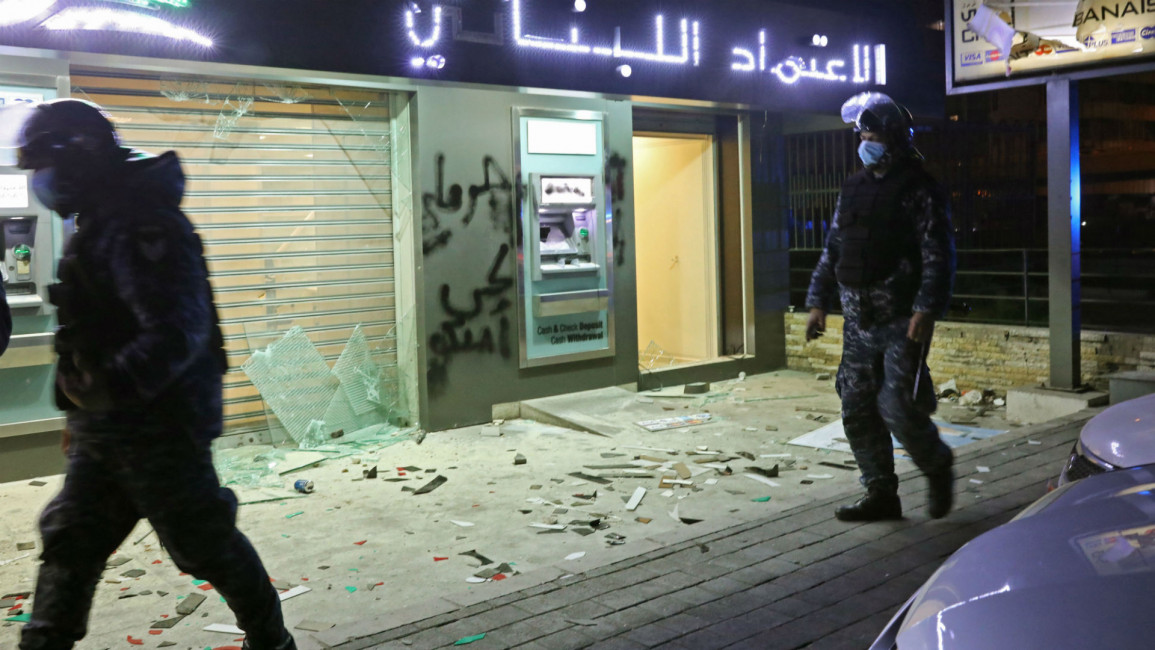Lebanon banks tighten withdrawal caps, sparking outcry
Major banks in Lebanon began tightening banking controls this month, halving the amount of dollars depositors are allowed to withdraw every month, despite growing public anger.
Faced with a dollar liquidity crunch, banks have imposed informal controls on dollar withdrawals and transfers abroad since September amid widespread anti-government protests and Lebanon's worst economic crisis in decades.
Withdrawal limits differ from bank to bank, but have so far generally been capped at around $1,000 a month, while most transfers abroad have been halted.
Some banks have now imposed even tighter restrictions.
Three major banks contacted by AFP on Monday said they have halved the dollar withdrawal limit since the beginning of February, some capping the amount at $600 a month.
Several banks have allowed slightly larger allowances to depositors who have more than $100,000 in their accounts, customers said on social media.
But even depositors who have more than one million dollars in their accounts can't withdraw more than 2,000 to 3,000 a month.
The informal controls have sparked public outrage in protest-hit Lebanon, where an anti-government street movement launched on October 17 has grown increasingly angry at banking policies.
"These new illegal measures by banks come with the political blessing of the new government," said activist Lucien Bourjeily.
Comment: The Lebanese revolution is totally winning, and here's why
The new cabinet, which was formed last month, is expected this week to outline its financial rescue plan.
Experts and demonstrators say banking controls amount to a de facto "haircut" on savings because they are forcing dollar depositors to deal in the nosediving Lebanese pound.
The currency has plunged against the greenback on the parallel exchange market, though the official peg of 1,507 pounds to the dollar in place since 1997 remains unchanged.
Central bank chief Riad Salameh last month said that he agreed with money exchange houses to cap the parallel rate at 2,000 - but several exchanges continue to charge rates edging towards 2,200.
Salameh last month asked for special powers to authorise the banks to set withdrawal limits, which had not formally been backed by the government.
The finance ministry, however, has yet to publicly respond to his request.
Twitter Post
|
Follow us on Twitter and Instagram to stay connected



